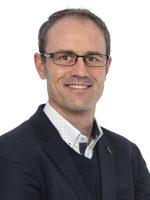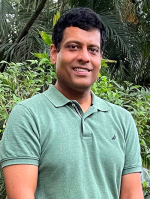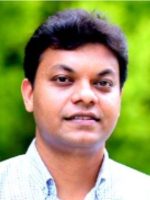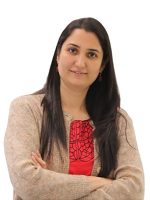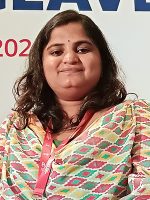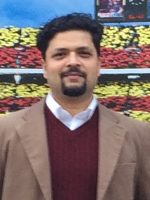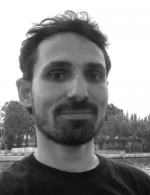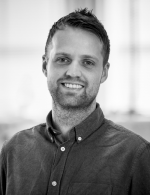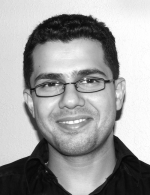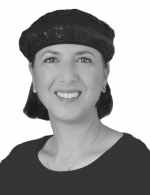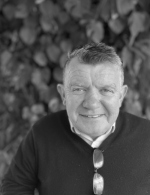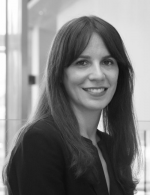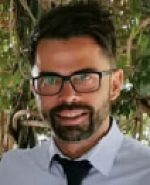Programme
Get ready for a dynamic agenda

Conference Sessions
8:30- 9:00
Arrival and Registration
9:00 – 9:20
Presentation
Welcome Address and Introduction to the IISc – CELLINK Excellence Centre
9:20 – 10:00
Keynote
3D (Bio) Printing of Implantable Biomaterials: Scientific Understanding of Process Science and Future Scope
Description
Biomaterials science and biomedical engineering have sustained as one among frontier and growing areas of research and innovation within the engineering science community in the world; considering the number of scientific discoveries and their societal impact. Significant attempts were largely directed to re-create functional musculoskeletal systems with considerable potential to treat various types of human diseases. At the beginning of my presentation, I will present multiscale measurements and analysis to quantitatively understand the process physics of binderjet 3D printing. I will present some of our recent results to demonstrate the efficacy of the 3D powder printing to fabricate Sr-substituted Mg-phosphate bioceramic scaffolds and Zirconia bioceramics, albeit with specific challenges. A major emphasis will be placed on the binder formulation, post-processing treatment, and micro-computed tomography of interconnected porous architecture together with the strength reliability. One of the most recent clinical translational attempts to treat decompressive craniectomy using 3D powder printed patient-specific cranial prosthesis will be presented. Towards the end, the recent results of 3D bioprinting will be presented. It will be shown as how the hydrothermally synthesized nanocrystalline needle-shaped HAp particles (<30 nm) were incorporated into pre-crosslinked gelatin methacryloyl (GelMA) hydrogel to obtain a better combination of compression strength (~ 300 kPa) and elastic modulus (~ 300 kPa) in a designed scaffold. We propose that the inorganic-organic nanocomposite hydrogel could be efficiently assembled to formulate a potential bioink for 3D bioprinting applications towards bone tissue regeneration. This lecture will close by introducing a new concept, Biomaterialomics, which brings together Biomaterials science and Data Science.
10:00 – 10:40
Keynote
Harnessing Cell-instructive Microenvironments for Scalable Biofabrication of Functional Tissues
Description
Coming soon.
10:40 – 11:00
Refreshments and Break
11:40 – 12:20
Keynote
Understanding Cell-cell and Cell Material Interactions in 2D and 3D for Tissue Engineering Applications
Description
Coming soon.
12:20 – 13:30
Lunch and Networking
14:10 – 14:30
Invited Speaker
Novel Cell-derived Bioinks for 3D Bioprinting Applications
Description
Coming soon.
14:30 – 14:50
Invited Speaker
Harmonizing Traditional Wisdom: Sustainable 3D Printing with Plant-derived Bioinks
Description
Coming soon.
14:50 – 16:00
Refreshments, posters and networking
16:00 – 16:40
Keynote
Revolutionizing Healthcare: The Promise of 3D Bioprinting in Biomedicine
Description
In the realm of tissue engineering, 3D bioprinting stands out as a revolutionary technology with immense potential. By allowing precise printing and patterning of cells and matrix materials in three dimensions, 3D bioprinting enables the recreation of tissue structures that closely mimic their natural counterparts. This capability holds the promise of generating tissue-mimetic constructs capable of replicating the functions of specific tissues within the body.
At our lab, we’ve been exploring a biomimetic approach to 3D bioprinting, which involves mimicking the intricate structure and organization of native tissues. One key aspect of our approach is the utilization of decellularized tissue matrix bioink, which provides a natural scaffold rich in extracellular matrix components necessary for cell adhesion, proliferation, and differentiation.
During my talk, I will delve into the various modalities of bioprinting, each with its unique mechanisms and operations. By discussing the differences between these modalities, attendees will gain a comprehensive understanding of the bioprinting landscape and the specific advantages each technique offers.
Furthermore, I’ll share insights into our ongoing research projects at the lab, particularly focusing on our use of extrusion-based 3D bioprinting. This method allows for precise deposition of bioink materials, enabling the creation of complex tissue constructs with tailored properties.
Moreover, I’ll highlight some of our translational works that are progressing toward clinical trials. These projects represent the culmination of our efforts to bridge the gap between cutting-edge research and real-world applications, with the ultimate goal of developing novel tissue-engineered therapies to address clinical needs.
16:40 – 17:10
Presentation
Bioprinting Ignited with Rising Pioneers
About the Session
Join us for an exciting session of Bioprinting Ignited, where two speakers will be selected from the Abstract Submissions, to inspire us with their research. Submit your abstract here to be considered.
19:00
Dinner
8:30- 9:00
Arrival and Registration
9:00 – 9:15
Presentation
Welcome Address
Cecilia Edebo, CELLINK CEO
Description
Our CEO, Cecilia Edebo, will be welcoming you to our CELLINK Partnership Conference 2023.
9:15 – 10:00
Keynote
3D and 4D Printing in the Development of Personalized Drug Delivery Systems and Implants
Description
New materials and manufacturing techniques are emerging with potential to address the challenges associated with the manufacture of pharmaceutical systems that will teach new tricks to old drugs. 3D printing / bioprinting is a technique that can used for the manufacturing of dosage forms and medical implants, and offers a new paradigm for the direct manufacture of personalized dosage forms. The introduction of the fourth dimension has led to an increase in the degree of complexity and customization possibilities of such personalized medical implants. However, 4D printing is still in the early stages, thus research is needed to prove its feasibility in healthcare applications. This talk will provide an overview of current approaches from our research Lab, towards the manufacturing of drug delivery systems and medical devices.
10:00 – 11:00
Panel
From Bench to Bedside: Exploring the Clinical Translation of 3D Tissue Models
About the panel
In 2022, the groundbreaking milestone of implanting 3D-bioprinted human tissue in patients was achieved, marking a significant shift in focus from “can we” to “when can we” translate bioengineered tissues and organs into clinical settings. However, substantial challenges remain in the path towards achieving widespread clinical translation.
Join us for this insightful discussion as experts discuss the challenges, considerations, regulations and trends in 3D bioprinting for biomedical applications allowing us to move one step closer to preclinical and clinical translations.
11:00 – 11:30
Refreshments and Break
11:30 – 12:15
Keynote
Bioprinting Vascularized 3D Tissue Constructs
Description
12:15 – 13:15
Lunch and Networking
13:15 – 14:00
Keynote
3D Printed Patient Tumours for Use in Preclinical Drug Discovery and Personal Diagnostics
Description
At Carcinotech our technology offers drug discovery and oncologists the opportunity to test multiple drug responses, doses, time points etc from a defined patient(s) population. Carcino3D™ technology is validated to ensure consistency, high-throughput and robust results. Using patient biopsies, tissue engineering, advanced robotic manufacturing and quality control to produce highly predictive, assay-ready printed tumours at significant throughput. This provides our clients with a “clinical biopsy” quality model, using isolated patient-specific cells and representing donor specific cancer heterogeneity. These printed tumours can be delivered assay-ready to your lab or our team of 3D oncology experts can utilise them to offer therapeutic screening services.
12:50 – 13:50
Workshop
Exploring G-code for Non-planar Printing
About the workshop
This is the session to advance your g-code script skills. The session will touch on non-planar g-code, what it is and how to implement it in your script. We will also dive into how to write script for very specific movements, tool head specific commands and how to use pp g-code as a tool to fabricate more advanced print patterns.
Level: Advanced
14:00 – 14:45
Presentation
Bioprinting Ignited with Rising Pioneers
About the session
Join us for an inspiring session of Bioprinting Ignited, celebrating achievements and breakthroughs of rising pioneers in the field of bioprinting. This session features the following presentations:
Generation of a Perfusable 3D Lung Cancer Model by Digital Light Processing
Yikun Mei, Technische Universität Berlin
—
A comparative study on the suitability of bioinks for 3D bioprinted head and neck tumour model
Alexya Azhakesan, Medical Faculty of Mannheim University of Heidelberg
—
3D Bioprinted Vascularized Skin-on-a-Chip Model for Drug Testing and Wound Healing Studies
Federico Maggiotto, University of Padua
14:00 – 15:00
Workshop
Optimisation for Light-based Bioprinting
About the workshop
This is the workshop session to deepen your light-based bioprinting skills. Learn how to design models for your Lumen X or BIONOVA X bioprinter and how to adapt the light parameters for optimal print quality. We will dive into the questions of how material composition, light intensity, and temperature, among other factors, affect your print and which tools can be used to enable printing of more challenging structures.
Level: Introductory
14:45 – 15:15
Refreshments and Break
15:15 -16:00
Keynote
Small scale big tools, innovative 3D in vitro platforms.
About the session
In this talk, Albane Imbert will provide an overview of the Making Lab Science technology platform work at the Francis Crick Institute, focusing on the development of microphysiological systems and more specifically how to offer reliable tools and methodologies to engineer them. From microfluidics to bioprinting, organoid culture platforms to organ-on-chip, she will discuss opportunities of such tools to be made available on demand in a research institute and the challenges encountered in setting up a new platform for the development of versatile 3D in vitro models.
15:15 – 16:45
Workshop
Setting up for Extrusion-based Multi-material Bioprinting
About the workshop
This is the workshop session to deepen your extrusion based bioprinting skills, learn how to utilise your BIO X and BIO X6 bioprinters full capacity by selecting the right tool head for the right application. The session will focus on how to set up and use the BIO X/X6 bioprinter with the different printheads and how to combine different methods of bioprinting to facilitate a multi-material print.
Level: Introductory
16:00 – 16:45
Keynote
Advanced Biofabrication strategies and Materials for Skeletal Tissue Regeneration
Description
In this talk, Dr. Marco Domingos will provide an overview of Henry Royce Institute’s work in the field of biofabrication for skeletal tissue regeneration. Dr. Domingos will discuss how advanced manufacturing techniques and polymeric inks, mainly those developed in their Lab, can be integrated to support the development of 3D models with tuneable properties and effectively employed in interrogating biological processes associated with tissue morphogenesis. He will highlight some of the major challenges and opportunities in the field of biofabrication and share the vision/mission of the Henry Royce Institute to accelerate the commercial exploitation of bioprinting innovations with potential socio-economic impact in key areas of research including human biology, medicine and drug discovery.
16:45 – 17:30
Presentation
Bioprinting Ignited with Rising Pioneers
About the session
Join us for an inspiring session of Bioprinting Ignited, celebrating achievements and breakthroughs of rising pioneers in the field of bioprinting. This session features the following presentations:
Development and optimisation of highly cellular, embedded bioprinting strategies for the 3D bioprinting of functional cartilage grafts
Kyle Storey, Trinity College
—
Exploiting 3D bioprinted models to assess drug response in Chronic Lymphocytic Leukemia
Riccardo Pinos, IRCCS San Raffaele Hospital
—
Functional assessment of 3D bioprinted liver tissues from human pluripotent stem cells
Mina Ogawa, McEwen Stem Cell Institute
19:30 – 00:00
Social activity
Networking Dinner
The agenda is subject to change.
Workshop Sessions
17:30 – 18:00
Arrival and Registration
18:00 – 20:30
POSTERS
Social activity
Welcome Drinks Reception and Poster Session
Poster Presentation Hours | 18:00 – 19:30 | Poster titles and authors
Drinks and finger food will be provided.
The agenda is subject to change.
Contact us
Send us an email by filling in the contact form here.
U.S.: +1 (833) 235-5465
EU: +46 31-12 87 00
India: +91 (0) 98808 58741
Japan: +81 (75)746-3032
Singapore: +65 8750 2284





